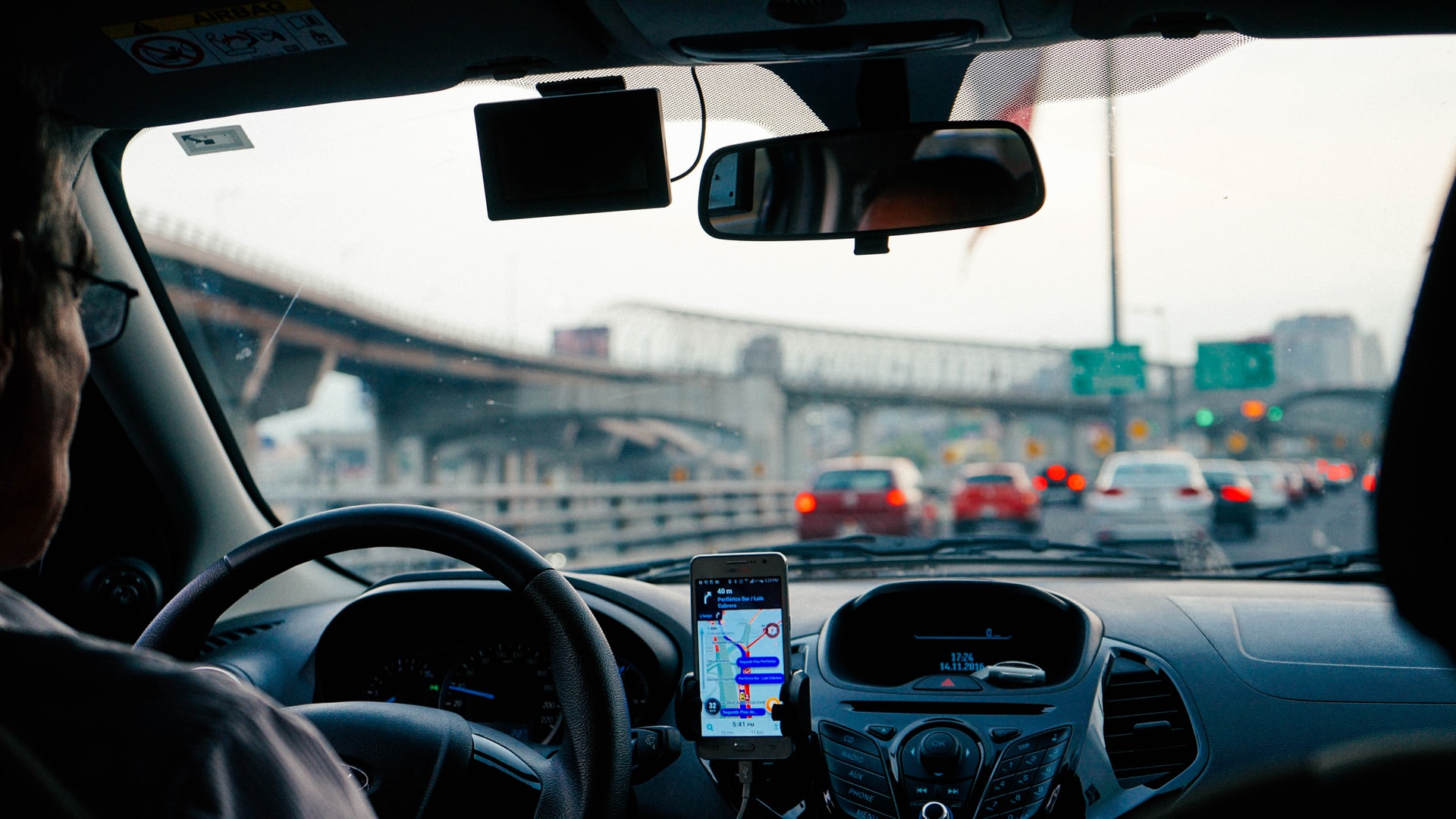Foreigners coming to Poland for a longer time decide to buy a car because it is often a faster means of transport, especially if the workplace is far. Having a valid driving license is also an opportunity to find a better job or explore the country. Replacing a driving license with a Polish one is as pressing as obtaining a residence card.
This article was prepared by the lawyer of Institute of the Migrant’s Rights Anna Tylinska on the order of Foundation Ukraine and addresses the most pressing issues such as replacing a driving license or car insurance. However, it does not exhaust the topic. The information contained below is valid as of August 10th, 2021.
What document entitles you to drive vehicles in Poland?
A driving license is a necessary document that allows you to drive a car in Poland. If you will stay in Poland for more than 185 days, you should use a Polish driving license. If for a shorter period – provided that your country is a party to the Vienna Convention on Road Traffic – you can benefit from your native document. If not – you should have an international driving license until it is replaced with a Polish driving license.
When should you exchange your driving license for a Polish one?
The driving license must be exchanged for the Polish one, if the foreigner stays in Poland for at least 185 days a year or stays permanently. A foreigner does not have to wait 185 days to exchange a driving license, but should not be late with its exchange for a Polish one.
Do you have to follow the same rules as a citizen of the European Union?
Yes, the period for replacing a driving license applies to anyone who has lived in Poland for longer than the period indicated above and wants to drive a car.
How is the process of replacing a driving license with a Polish one?
The first step to be taken is to check whether the foreigner’s country of origin is a party to the Vienna Convention on Road Traffic of November 8, 1968. If so, the foreigner can apply for a driver’s license exchange at the Department of Communications competent for the place of residence. The application must be accompanied by:
– current photo
– passport with a valid visa or residence card,
– a document confirming the address of residence,
– a copy of the driving license (original to be presented) with a sworn translation into Polish.
The issue of a Polish driving license should take about 7-9 days. If all correct documents have been submitted. The stamp duty is PLN 100.50.
Importantly, the driving license will be issued with the same validity period as that of the country of origin. In the case of Ukrainian citizens, they must first legalize their driving license at the Consulate of Ukraine (the cost is about PLN 113).
How can you exchange your driving license if your country is not a party to the Convention?
Poland has concluded an international agreement with two countries: Japan and South Korea. Citizens of these countries are covered by the same rules as the parties to the Convention, that is, a simple exchange.
However, in the case of other people, the situation is much more complicated – you have to pass the theoretical exam. The exam can be passed not only in Polish, but also in English or German. The exam questions in the computer test have been prepared only in these two foreign languages, and the presence of a sworn translator during the test itself is not allowed. The interpreter can, of course, accompany the candidate, but only until the test itself begins, i.e. in practice, help him understand the applicable examination rules and possibly get answers to the questions about the form and procedure of the examination. In the case of people who do not know one of these two foreign languages, this means that it is actually impossible to pass the driving test in Poland.
What problems can you face?
The most common problems are: the need to pass the theory test, the lack of a valid visa or residence card or the expiry of the foreign driving license.
In some cities, incl. in Wrocław, the residence procedures take a very long time. If a foreigner had a visa issued only for a period of 6 months, and submitted an application for a temporary residence permit during that time, he will have to wait for a positive residence decision to be issued.
However, if a foreigner has missed the period of validity of his visa and is still waiting for a residence card – he will not be able to exchange his driving license.
Is it possible to replace an invalid driving license?
Unfortunately, an invalid driving license cannot be replaced. In this case, you must obtain a new driving license in your country of origin or through a consular mission or pass a theoretical and practical exam in Poland.
What is the risk of not having a valid driving license or driving license?
The lack of a valid driving license is subject to a fine in the amount of PLN 50 – 500. For driving without valid licenses, i.e. not having a driving license at all – up to PLN 5,000.
In what situations can you lose your driving license?
The law defines a number of road law violations that result in the loss of your driving license. Importantly, a driving license exchanged for a Polish driving license can be taken for a period of 3 months, 1 year to 10 years. It can also be taken for life. The driving license may be withheld for 3 months, e.g. for speeding 50 km / h in built-up areas. The driving license may be detained for a period of at least 1 year in the event of committing a crime, e.g. driving after drinking alcohol or the perpetrator’s escape from the scene.
Does the car have to be insured?
In Poland, there is an obligation to have liability insurance (in short: third party liability insurance) for owners of motor vehicles, including those that are not used. So the car parked in the garage must also have a valid liability insurance. The Insurance Guarantee Fund has a policy validity monitoring system. Hence, you can get a ticket without leaving the garage.
Optional insurances worth having are AC and NNW. The first – AC is the so-called autocasco, i.e. voluntary motor insurance, which guarantees coverage of the costs of damage resulting from a collision or road accident, damage to the car by third parties or unforeseen weather conditions, vehicle theft and its fire or explosion. The second optional insurance is accident insurance (NNW). It covers the protection of the life and health of both the driver and passengers. It is paid in the event of permanent health impairment. The accident insurance covers damages incurred as a result of a road accident and in other traffic situations.
What is the risk of invalid insurance?
The penalty for the lack of valid compulsory insurance (TPL) is imposed for even 1 day of insurance interruption. The amount of the fine depends on the type of registered vehicle, the number of days without valid civil liability insurance and the minimum gross wage, which is PLN 2,800 in 2021.
The penalty ranges from PLN 190 to PLN 8,400, depending on the vehicle and the period without valid liability. Always make sure that your car insurance is valid for longer stays outside of Poland. Regardless of whether the insurance history gap is 3 months or 11 months, the penalty will be the same. For owners of passenger cars without civil liability it is PLN 5,600.
How to legally transport children?
A child shorter than 150 cm must be compulsorily transported in a car seat. Improper transport, i.e. without a seat, may result in a fine of PLN 150 and 6 penalty points. The police may impose such a fine on drivers who are not only transporting children without a seat but also if it is not attached properly. Exceptions when it is not necessary to transport a child in a seat are:
– when the child’s weight and height do not allow to choose the appropriate seat for him (it applies to children over 135 cm tall).
– when the child is transported in an ambulance, police car or taxi.
– when parents travel with three children and two of them already use car seats, while the third seat does not fit. Then, a child who is 3 years old can be transported without a seat, but on the condition that it will sit in the middle, fastened with safety belts.
– when, for medical reasons, the doctor advises against carrying the child in the seat.
How to legally use a gas car?
After installing the gas installation, you will receive a set of documents necessary to legalize the new car equipment in the workshop. It includes: a certificate of approval for the installation method, a certificate for the gas tank (cylinder passport) and a bill for the installation of the gas installation. After receiving the documents, it is necessary to go to the communication department within 30 days. On site, you will receive a free entry of an annotation about the installation of the gas installation in the registration certificate, on the basis of which it is legalized. During the verification at the office, the following must be presented: the original excerpt from the assembly type approval certificate, invoice from the workshop where the LPG / CNG installation was installed, registration certificate, vehicle card – if issued, and identity card. It should also be remembered that exceeding the deadline for visiting the communication department may result in the imposition of a fine and the retention of the registration certificate during the roadside inspection. After installing and legalizing the LPG / CNG installation in the vehicle, one should remember about the annual technical inspection. Please note that parking in underground car parks is not allowed.
Stay in touch with the Foundation Ukraine!
Follow us to keep up to date with all our projects and events!
Facebook:https://www.facebook.com/CUKR.Wroclaw/ and https://www.facebook.com/fundacja.ukraina/.
Instagram: https://www.instagram.com/cukr.wroclaw/.
YouTube: https://www.youtube.com/channel/UCS9Afcq5gYybQwMTOvfeGXg.
——–
This article has been written within the framework of the reSTART project, which is co-financed by the National Asylum, Migration and Integration Fund Programme and the state budget.
Bezpieczna przystań
Wyłączna odpowiedzialność za wyrażone opinie spoczywa na autorze i Komisja Europejska oraz Ministerstwo Spraw Wewnętrznych i Administracji nie ponoszą odpowiedzialności za sposób wykorzystania udostępnionych informacji






